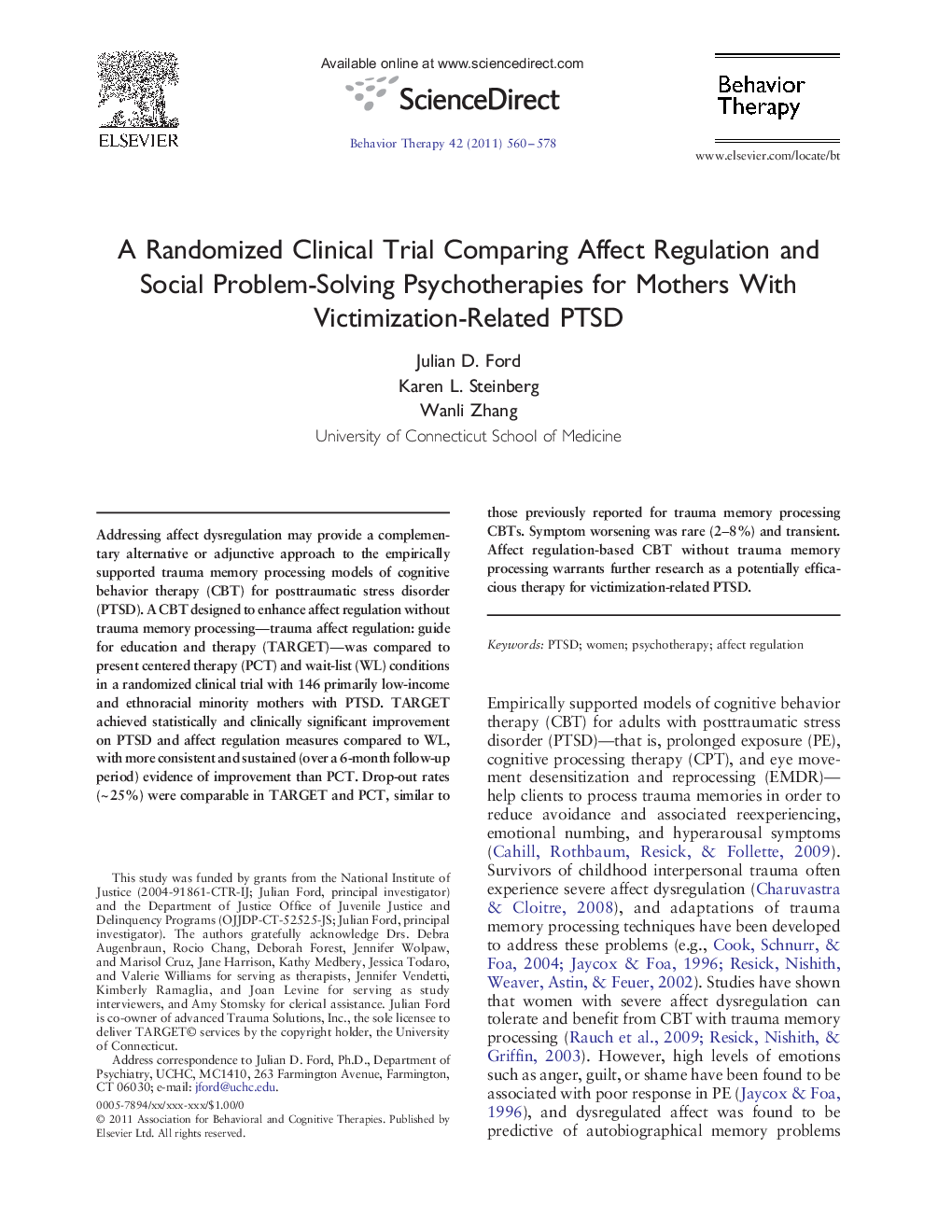| Article ID | Journal | Published Year | Pages | File Type |
|---|---|---|---|---|
| 901325 | Behavior Therapy | 2011 | 19 Pages |
Addressing affect dysregulation may provide a complementary alternative or adjunctive approach to the empirically supported trauma memory processing models of cognitive behavior therapy (CBT) for posttraumatic stress disorder (PTSD). A CBT designed to enhance affect regulation without trauma memory processing—trauma affect regulation: guide for education and therapy (TARGET)—was compared to present centered therapy (PCT) and wait-list (WL) conditions in a randomized clinical trial with 146 primarily low-income and ethnoracial minority mothers with PTSD. TARGET achieved statistically and clinically significant improvement on PTSD and affect regulation measures compared to WL, with more consistent and sustained (over a 6-month follow-up period) evidence of improvement than PCT. Drop-out rates (~ 25%) were comparable in TARGET and PCT, similar to those previously reported for trauma memory processing CBTs. Symptom worsening was rare (2–8%) and transient. Affect regulation-based CBT without trauma memory processing warrants further research as a potentially efficacious therapy for victimization-related PTSD.
► The study evaluates an affect regulation-based cognitive behavior therapy for PTSD. ► Low-income mothers with PTSD were randomly assigned to one of two therapies. ► Affect regulation therapy led to improvement in PTSD and affect regulation skills. ► Improvements were maintained at three- and six-month follow-up assessments. ► Affect regulation therapy is a potentially efficacious option for PTSD treatment.
